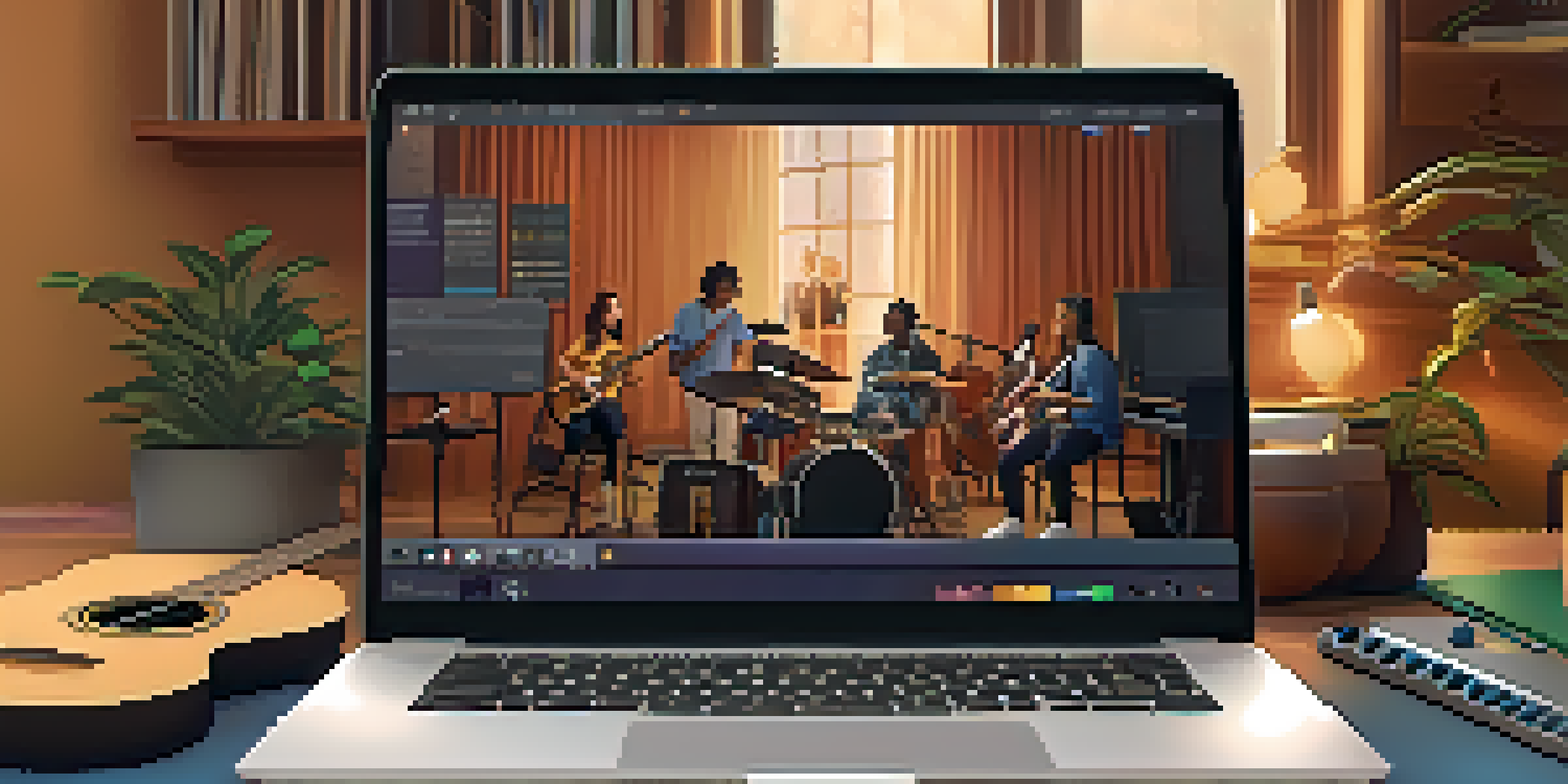The Impact of Online Platforms on Music Education Accessibility

The Rise of Online Music Education Platforms
In recent years, online music education platforms have surged in popularity, transforming how students learn music. With the ability to access lessons from anywhere, learners no longer need to be confined to traditional classrooms. This shift has opened doors for aspiring musicians, allowing them to explore a variety of genres and styles at their own pace. As a result, the landscape of music education is evolving, catering to diverse learning needs and preferences.
Breaking Geographic Barriers in Music Learning
One of the most significant impacts of online platforms is their ability to break down geographic barriers. Students in remote areas can now access high-quality music education from renowned instructors, which was previously impossible. This democratization of learning means that talent can emerge from anywhere, regardless of location. Consequently, the music industry is witnessing a more diverse range of voices and styles, enriching the overall cultural landscape.
Affordable Learning: A Game Changer for Aspiring Musicians
Online music education platforms often provide more affordable options compared to traditional lessons. With various pricing models, including subscription services and free resources, students can find something that fits their budget. This affordability makes music education accessible to a wider audience, including those who may have previously thought it was out of reach. Ultimately, this shift not only nurtures individual talent but also fosters a more inclusive music community.
Flexibility and Self-Paced Learning in Music Education
Online platforms offer unparalleled flexibility, allowing students to learn on their own terms. With recorded lessons and the option to revisit materials, learners can progress at their own pace, ensuring they fully grasp each concept. This self-paced approach can be particularly beneficial for those with busy schedules or other commitments. As students feel more in control of their learning, their motivation and engagement tend to increase, leading to better outcomes.
Diverse Learning Styles Catered by Online Resources
Every student has a unique learning style, and online platforms excel at catering to these differences. From video tutorials and interactive quizzes to downloadable sheet music and community forums, these platforms provide a variety of resources. This versatility allows students to choose the methods that resonate most with them, enhancing their overall learning experience. By accommodating different preferences, online music education becomes more effective and enjoyable.
Community Building Through Online Music Platforms
Another significant benefit of online platforms is the sense of community they foster among music learners. Many platforms feature forums and social media groups where students can connect, share experiences, and collaborate. This interaction not only provides support but also encourages networking and the exchange of ideas. As students feel part of a larger community, they are more likely to stay engaged and motivated in their musical journeys.
Challenges in Online Music Education Accessibility
Despite the many advantages, online music education is not without its challenges. Access to technology and reliable internet connections can be significant barriers for some learners. Additionally, the absence of face-to-face interaction may hinder the development of certain skills, such as performance confidence. Addressing these challenges is essential to ensure that online platforms can provide equitable music education for everyone.
The Future of Music Education: A Blend of Online and Offline
Looking ahead, the future of music education may lie in a hybrid model that combines both online and traditional methods. This approach can leverage the strengths of each, offering students the flexibility of online resources alongside the personal touch of in-person instruction. As technology continues to evolve, we can expect even more innovative solutions to enhance music education accessibility. Ultimately, the goal is to create an environment where all aspiring musicians can thrive, regardless of their background.